Nashville of the North: when country music ruled Liverpool
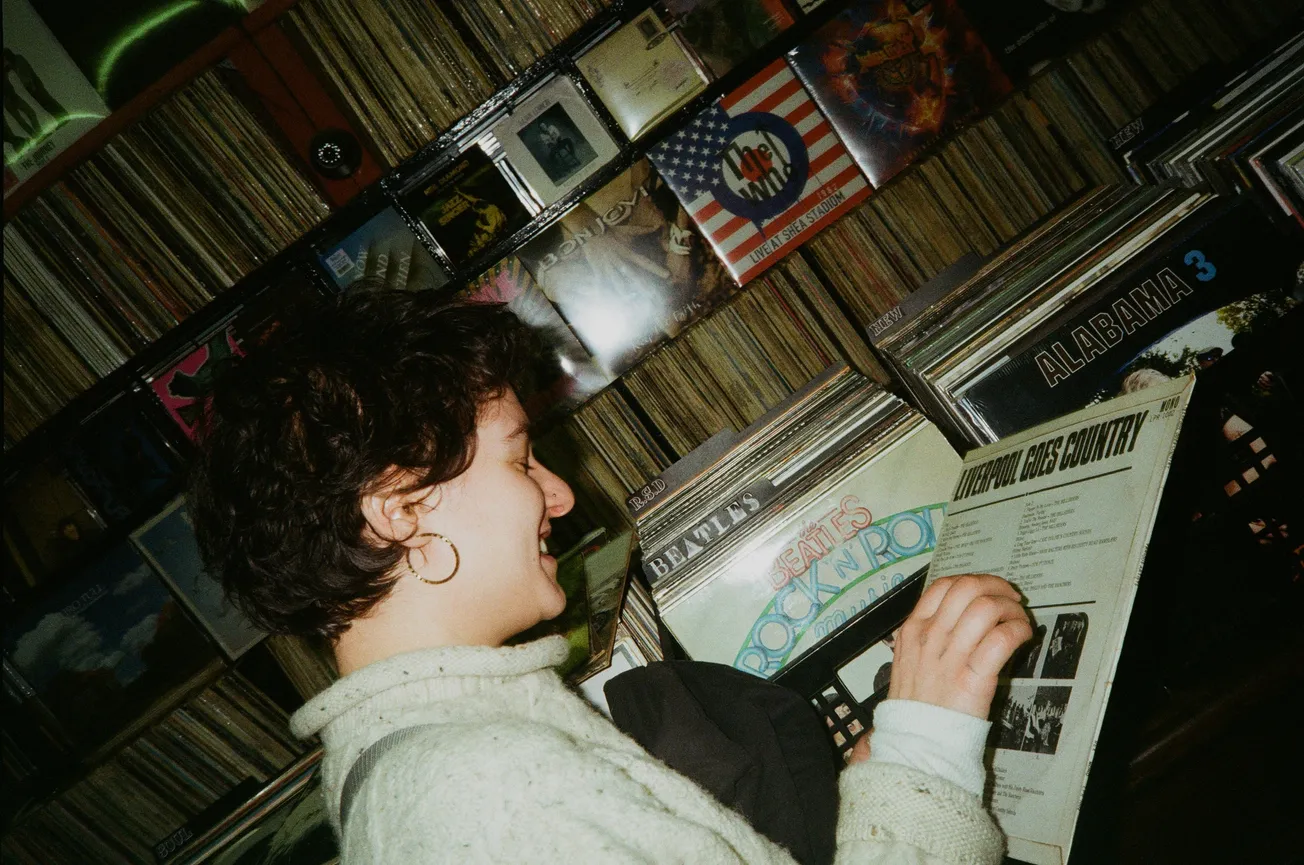
‘I heard country-and-western music in Liverpool before I heard rock’n’roll,’ John Lennon once said. So why is it so hard to find out more about our scouse country history?
Whenever the subject of music is raised in Liverpool, the conversation is invariably dominated by that one band; the group of scousers who shook the world, changed the face of pop music, and secured Liverpool’s place on the musical map. But the truth is that there’s a lot more to the Liverpool music scene than Atomic Kitten. The ’60s saw the rise of Merseybeat and skiffle, the ’80s brought that great surge of moody psychedelic post-punk with all those long-named bands like The Teardrop Explodes and Echo & the Bunnymen, and the ’90s gave us that one hit by The La’s. Yes, Liverpool has always been a city of greats. But before all that, before washboards and woodblocks, before Paul McCartney went solo and Julian Cope discovered hallucinogens, the Liverpool music scene was allegedly dominated by the most starkly unlikely and deeply uncool genre of them all: country music.
At Liverpool’s oldest record shop, The Musical Box in Tuebrook, I am struggling to stand up. I drank between six and eight pints of Guinness and black the night before, and now every time I straighten up after crouching over a box of country singles I am confident that I’m going to pass out. “Head rush,” I explain to Paula the owner, who has noticed me wavering, and she nods sympathetically.
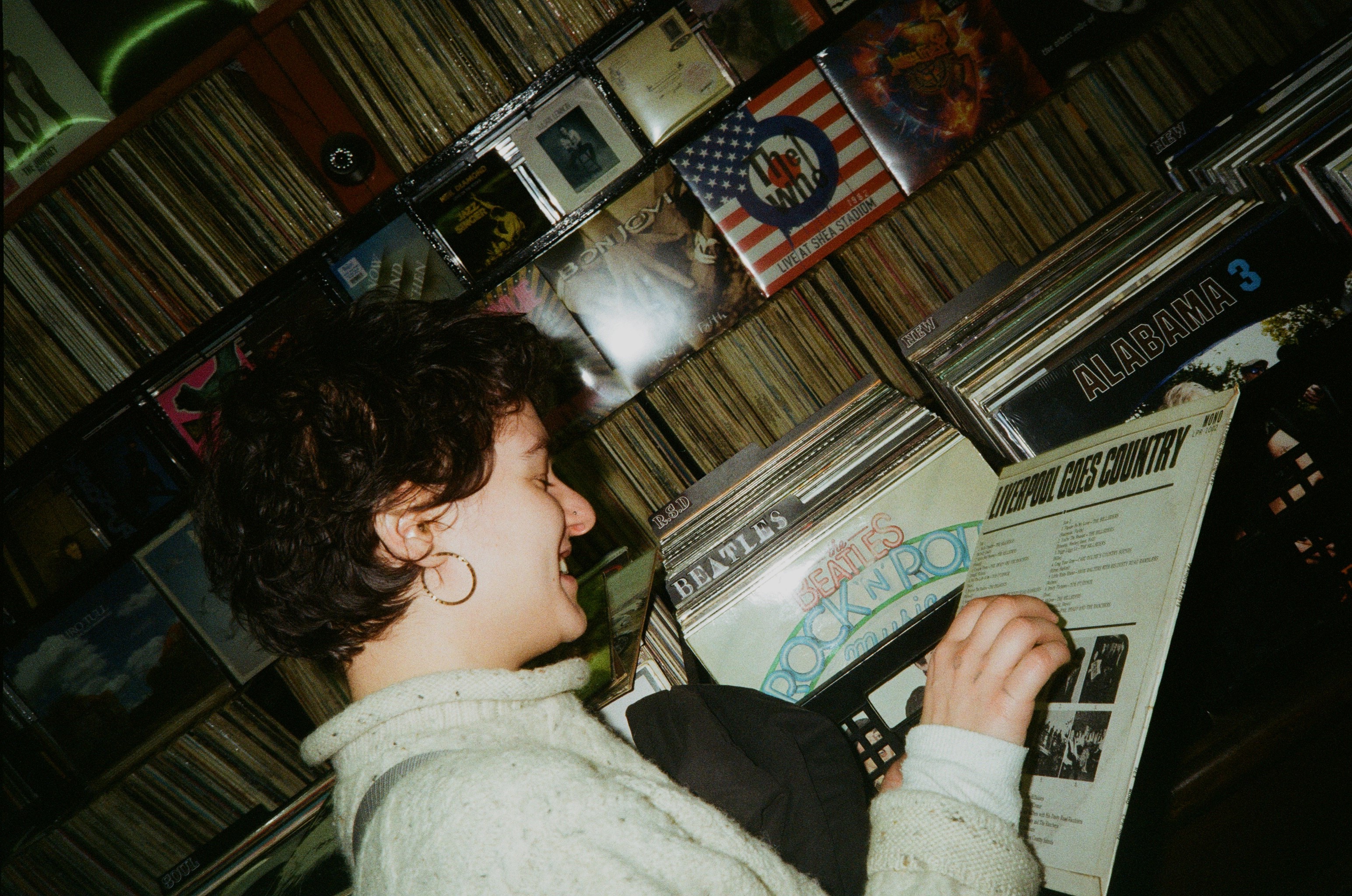
I’m here because all my attempts at finding out more about the Liverpool country music scene – a scene that by online accounts was massively popular in the late ‘50s and ‘60s – have been met with glazed eyes. Nobody I asked the night before knew anything about it, not in The Cracke or The Grapes or The Vines. Further to this, it turns out that there is hardly a single piece of Scouse country music available online, save for a handful of badly recorded gigs from the ’80s on YouTube, and the odd obscure single. But the fella working at 81 Renshaw record shop, despite not knowing what I was on about, told me that The Musical Box would be my best bet at finding some of the genre’s records. So now I am here, struggling to remain upright, working my way through a box of old country EPs, and Paula is handing over her 80-something mother-in-law to me on the phone.
Diane, the mother-in-law-in-question, started working at the shop – her parents’ shop – when she was just 13 years old. That was in 1950, and she only just retired during the pandemic at the age of 83. The first record she ever sold was a country record: Hank Williams’ Lovesick Blues. Ever since then she has fostered a deep love for country music, American and Scouse alike, and she was far from alone in this love. “Hank Williams was who everybody admired, everybody worshipped,” she recalls fondly over the phone.
“The sailors brought country music from the USA to Liverpool via the sea,” Diane explains. She describes how, after the Second World War and just as she began working at the shop, the music scene in Liverpool was beginning to change. The nature of Liverpool as a port city meant that Scousers were being exposed to music from all over the globe. Of all things, it was country music that became wildly popular, baffling even the record suppliers of The Musical Box, who claimed that they sold more country records in Liverpool than anywhere else in the UK. Singles and LPs recorded in Alabama or Mississippi were flying off the shelves in Tuebrook, and Liverpool came to be known as Europe’s country music capital — ‘The Nashville of the North’. “I heard country-and-western music in Liverpool before I heard rock’n’roll,” John Lennon famously told Rolling Stone. “I started imitating Hank Williams when I was 15, before I could play guitar.”
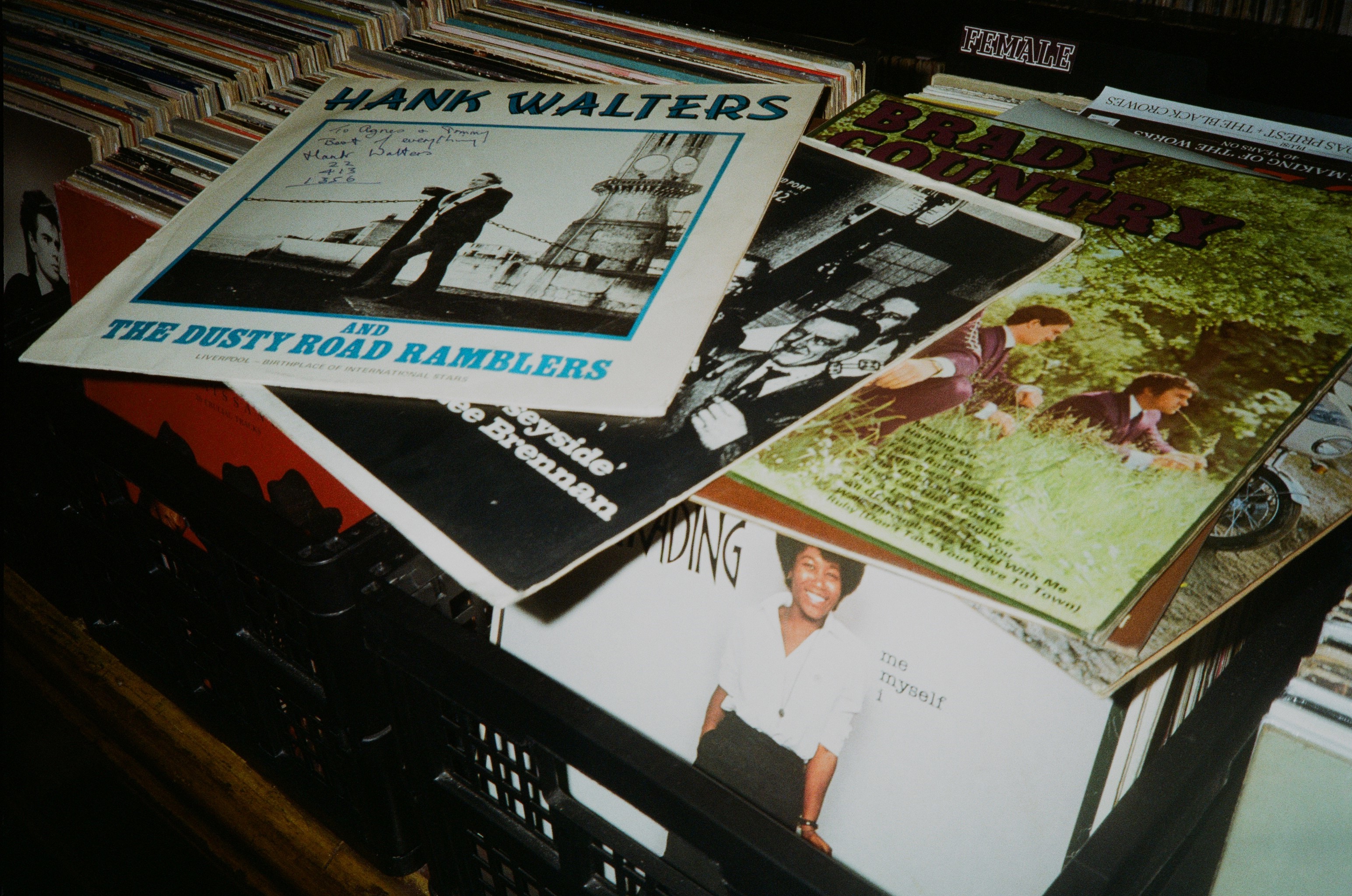
Lennon was far from the only Liverpool local to imitate the American greats. Soon enough The Musical Box was being frequented by various Scousers in ten-gallon hats. One of these cowboy customers was Hank Walters, soon to be the Hank Walters of Hank Walters and the Dusty Road Ramblers, one of Liverpool’s most successful country singers (real name, obviously, Ralph). The Dusty Road Ramblers, alongside The Hillsiders, rose to the heights of popularity in ‘60s Liverpool, first with covers of American classics, and then with Liverpool-themed country songs of their own.
By the time Merseybeat had come around, the country music scene was equally popular throughout the city. “We had Merseybeat, and we had Countrybeat,” claims Diane, “but I don’t think record companies ever thought highly of country music. It was inferior to rock-and-roll.” Perhaps for this reason, very few of the Scouse country bands were able to go professional. In fact, The Hillsiders were one of the only ones to even sign a record deal. “They all had jobs, and they wouldn’t give them up,” Diane explains – though I’m not sure if this ‘wouldn’t’ was more of a ‘couldn’t’. Liverpool’s country stars still had to make a living. Hank Walters, for example, worked down at the docks, and would often finish work, drive off to whichever venue he was playing that night, then make the long journey back and return to work the next day without stopping home.
One of the venues these bands would regularly perform at was The Black Cat Club. Opened by Walters himself in 1957, above Sampson and Barlow’s restaurant on London Road, the club advertised itself as “the largest country-and-western club outside of London”. This may not be saying much – the club only had a 200-odd capacity – but it still enjoyed pretty great success. It was open seven days a week, with a dance floor and a members bar, and Hank Walters and his Dusty Road Ramblers playing as the in-house band. The club opened just under a month after The Cavern Club, which was soon to be a famous hang-out spot for The Beatles, but the four lads were known to frequent the Black Cat Club on numerous occasions too. Speaking to Country Music Roundup in 1981, Walters suggested that the time The Beatles spent at his club had a formative influence on their music. “I used to tell them that I could hear bits of country in what they were doing,” he claims proudly. “They were listening to us, so we must have influenced them.”
But, rather unlike The Beatles, The Dusty Road Ramblers appear to have all but faded into obscurity. So far I’ve scoured through a box of country LPs, then EPs, then singles, and I’ve come up empty of anything by the Ramblers or the Hillsiders, let alone the LP I really want – a compilation album titled Liverpool Goes Country featuring all of the Scouse country hits. Diane had suggested there could be a box of the stuff somewhere under the till, but the owners – Paula and her husband Tony – haven’t found it yet.
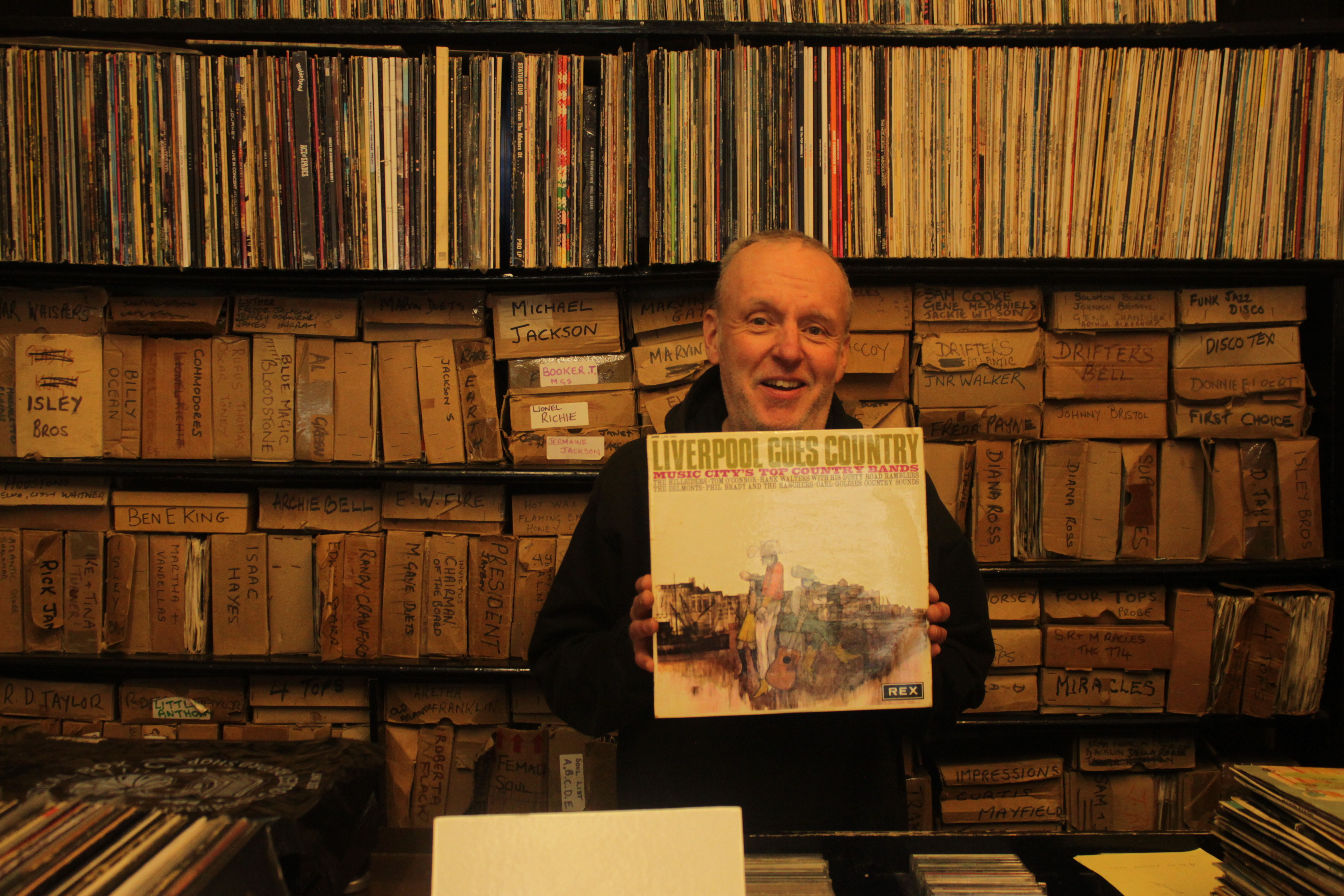
Country music has undoubtedly fallen out of favour at The Musical Box. “We sell bits, but not a lot,” Paula tells me, “but Diane heard on the radio that country is coming back into fashion.” Such claims are not unfounded. Just yesterday Beyoncé released an album of country ballads named Cowboy Carter (though she has strictly denied that it’s a country album – it’s a “Beyoncé album”), and here in the UK, our Ed Sheeran from Halifax has been spotted doing country collabs with American superstar Luke Combs.
Downstairs, Tony is still looking for the alleged box, and while he rummages I ask him if he’s seen any rising interest in country music, Scouse or otherwise, over the last few years. “I hadn’t sold any for ages,” he says, “and then suddenly I sold three Hillsiders LPS last week!” I’m very impressed, of course. “But the lad who bought them… I think his dad was in the band or something.”
At this point I begin to get a little concerned that I’m going to come up empty, and have to write an article about a music scene I’ve never actually listened to. “You know,” Tony remembers suddenly, “I had a customer copy all those Liverpool country records onto CDs once.”
“Really?” I ask. “Can I buy one of them?” He thinks for a while, then shakes his head. “I’d have to copy them for you, and that means I’d have to listen to them again.”
Finally, we hit the jackpot. The box as foretold by Diane really was under the till all along. Suddenly Tony begins pulling out LP after LP of Liverpool country records: Our Country by The Hillsiders, signed by Kenny Johnson; The Dusty Road Ramblers live LP, signed by Hank Walters. I’m excited to see the signed copies, but a little concerned about the price. Tony laughs. “It’s the unsigned ones that are worth more.”
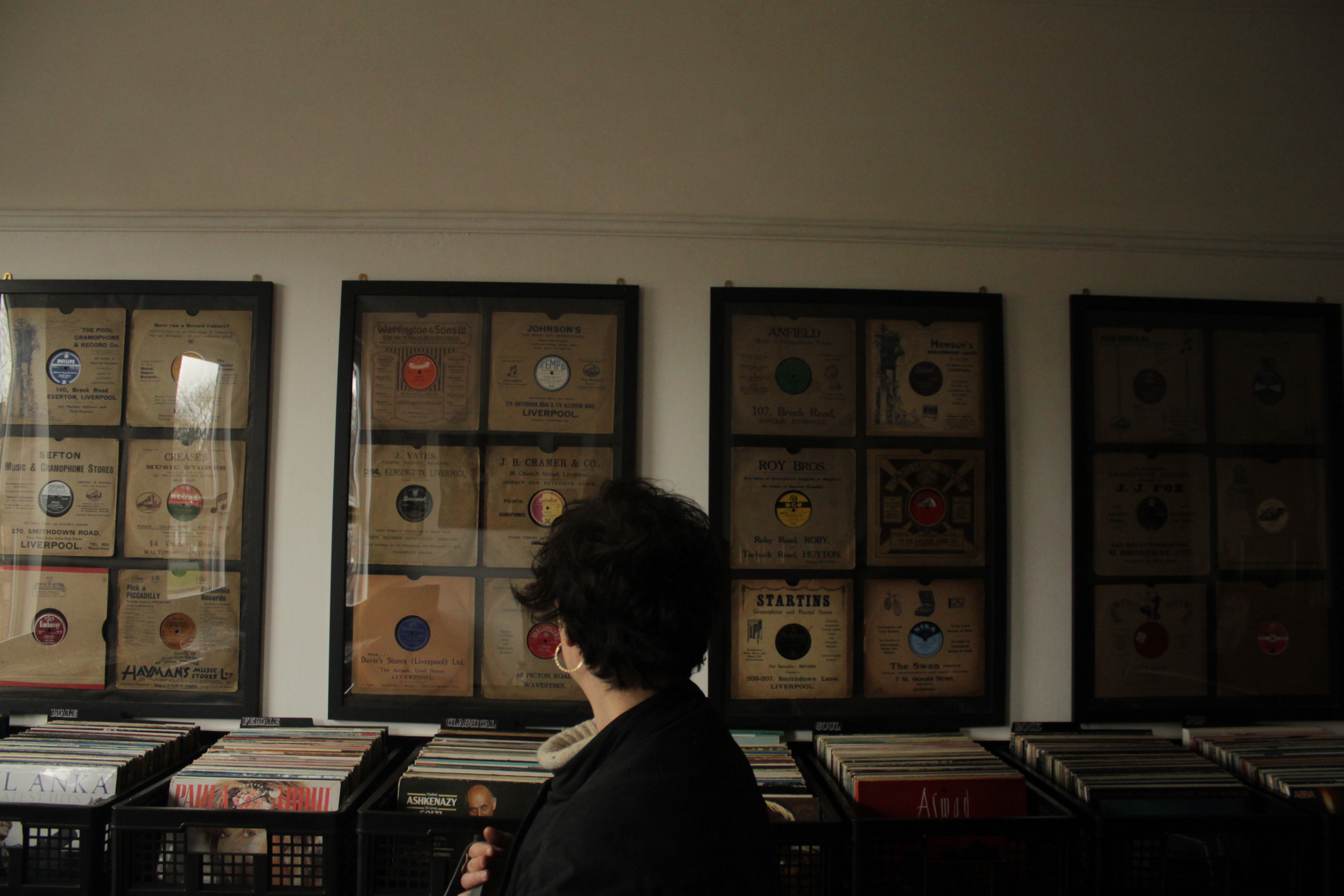
Last but not least, he shows me the holy grail, a decent condition copy of Liverpool Goes Country, the exact LP that I was after. I uhm and ah for a few seconds over the price, and then I buy it, but before I go, I ask Tony if I can get a photo of him holding it up. “OK,” he replies, “but you’ll have to tell a joke if you want me to smile for it.”
I ready the camera. “Everton’s gonna win the league!” shouts a customer from upstairs.
I get back home and stick the LP on, skipping straight to an original song called ‘Sweet Liverpool’ by Hank Walters which sounds particularly promising. “Every time I hear that lonesome steamboat caaall…” Hank wails in a voice which perfectly combines Scouse gruffness with a hint of Southern American affectation when drawing out the vowels. “...As she sails along the river Mersey waaall…” There’s something decidedly ridiculous about the whole thing. It’s as bog-standard a country song as you’ve ever heard, complete with accordion intros and banjo solos and textbook pining nostalgia, only this time the lonesome trains chug alongside lonesome steamboats, and the river Mersey trickles its way through the entire song.
The covers of the country classics prove to be even more absurd. Three songs in to the album is a version of ‘Cocaine Blues’ performed by Phil Brady and the Ranchers, and while the vocals and the musicianship are definitely up to scratch, singing about taking a shot of cocaine and shooting your woman down is always bound to be a lot less romantic when the song sounds like it’s set in Dingle instead of Jericho Hill. The eighth track on the album is a bluegrass number, a new arrangement by Carl Goldie of the traditional song ‘Rollin’ in my Sweet Baby’s Arms’. Goldie seems to acknowledge that he can’t quite achieve that high-pitched, high-lonesome sound of the real bluegrass legends, so instead he gets his wife, Joan, to sing the high harmonies, to much less lonesome effect.
At this point, it’s safe to say that I’m struggling to understand the reasoning behind this particular music scene. Why take a genre so far removed from your own experience, and mimic it without making it entirely your own? Country music was in no small part derived from folk songs brought to America over the sea by British and Irish immigrants. Why did anybody feel the burning need to bring it back?
I call up David Bedford, an expert in Liverpool’s music history and the author of The Country of Liverpool — a book that details the rise and fall of country music in the city — for an answer. David is far less cynical than I am about the English having their own folk music adapted and sold back to them by the Yanks. “It’s a lovely cycle, isn’t it?” he says, more to himself than to me. “Almost like it’s always been here.”
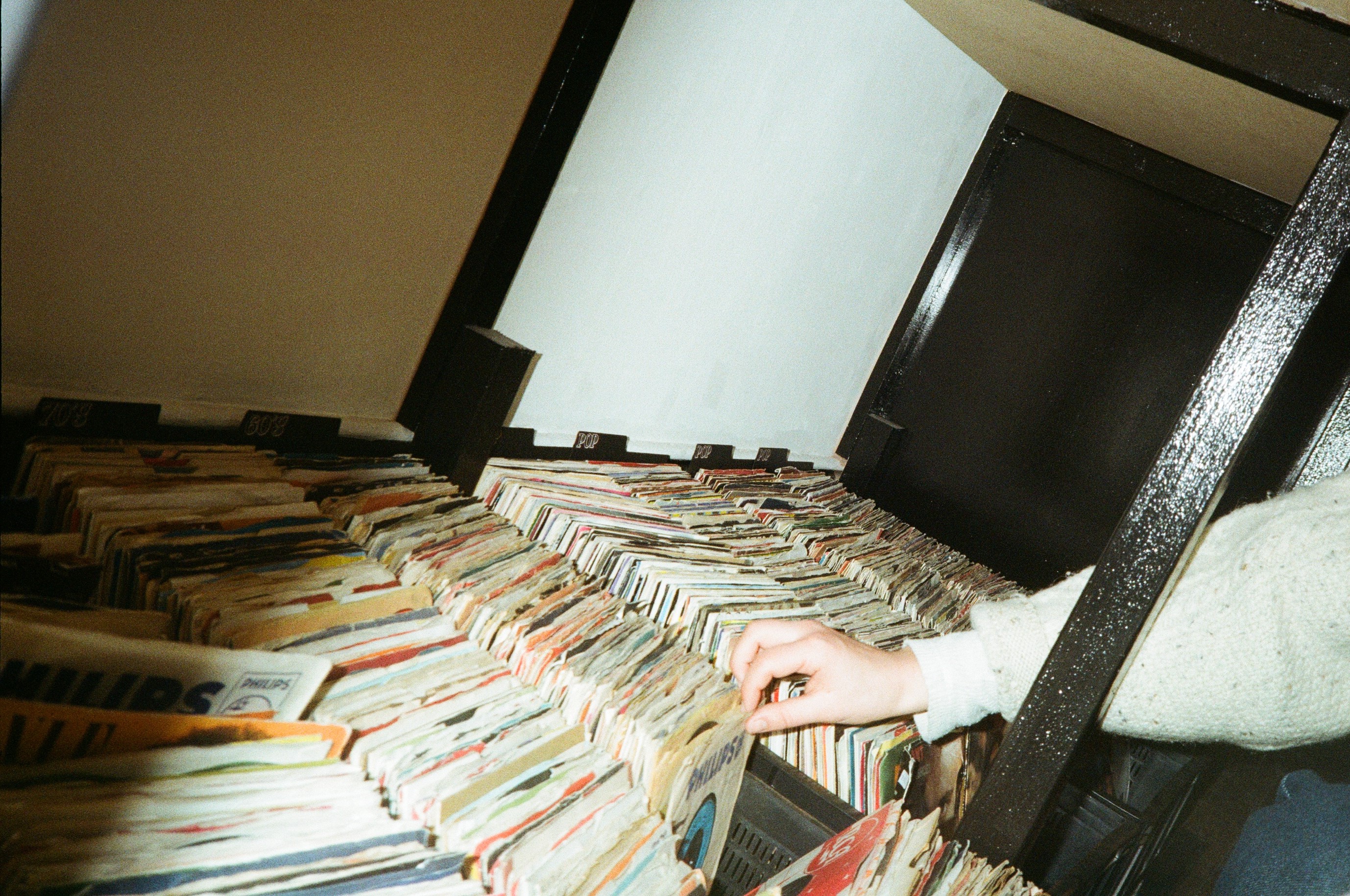
David, like Diane, attributes the popularity of country music first and foremost to the ports. But this isn’t quite satisfactory – after all, sailors from a huge variety of backgrounds were arriving in the city, all undoubtedly bringing their music with them. Why was it country music that resonated with scousers most of all? “American culture was the glamorous thing,” answers David, referring to the period during and after the war. “It was opulence. It was wealth.”
“In the cinema it was American movies. There were thousands of American servicemen based in Burton Wood. Radio Luxembourg was beaming in American music on shortwave radio into the UK. So you had the first generation of teenagers with disposable income, and they were saturated with American culture.”
While all this adds up, to me the most convincing of David’s theories is that country music is effectively an oral history of itself, documenting the relationship between the UK and the USA. “[British folk music] was adapted over in the Appalachians, then brought back over. This kept the story going,” he explains. This brings to mind my own love for listening to Appalachian lined-out hymnodies adapted from Scottish church music, even though I am from Scotland and have access to the real deal. There is something undoubtedly beautiful in witnessing your culture in the hands of others so far removed from you. “Country music was telling stories,” says David. “It was a way of sharing culture, sharing history. So now the sailors were going away from Liverpool, and writing country songs about missing it.”
So then what happened? What disastrous event led to the tarnishing of country in the hearts and minds of the Scouse? “Ah,” says David. “That’s the ‘Achy Breaky Heart’ part of the story.”
“It was the line dancing. That’s what did it. ‘Achy Breaky Heart’ was a massive hit, and line dancing became very big.” I have no answer to this whatsoever. ‘Achy Breaky Heart’ came out in 1990. I’m trying to picture a group of lads from Croxteth doing ‘the grapevine’ while their mates in Salford took Es and listened to ‘Step On’. David goes on despite my silence, explaining that the country music venues suddenly stopped wanting to pay for full bands. All they wanted was a solo act to play the basic rhythms that people could dance to. Phil Brady, the aforementioned Dingle-born coverer of ‘Cocaine Blues’, went from performing as Phil Brady and the Ranchers, to getting up on stage solo with nothing but a backing tape, all because of ‘Achy Breaky Heart’.
I am baffled by this new information, to say the least. I mean, which version of ‘Achy Breaky Heart’ are we talking about here? Surely not Billy Ray Cyrus? I consult David. “It was definitely Billy Ray Cyrus and his famous mullet,” he answers with disdain. “Both should have been banned.” But all is not lost. Mullets might finally be falling out of fashion. Billy Ray Cyrus has been dethroned. Irish folk acts like Lankum are gaining a following in the states, and country music is on the rise once more. And David, of course, was right: it really is a lovely cycle.

Comments
Latest
Pete Burns wasn’t nice, kind, or fair. But he was unforgettable
Can we revive Liverpool’s high streets?
Ghosts, gangsters and giving Liscard a chance
Trust in vaccines has fallen post-COVID. Now Knowsley has a measles outbreak
Nashville of the North: when country music ruled Liverpool
‘I heard country-and-western music in Liverpool before I heard rock’n’roll,’ John Lennon once said. So why is it so hard to find out more about our scouse country history?